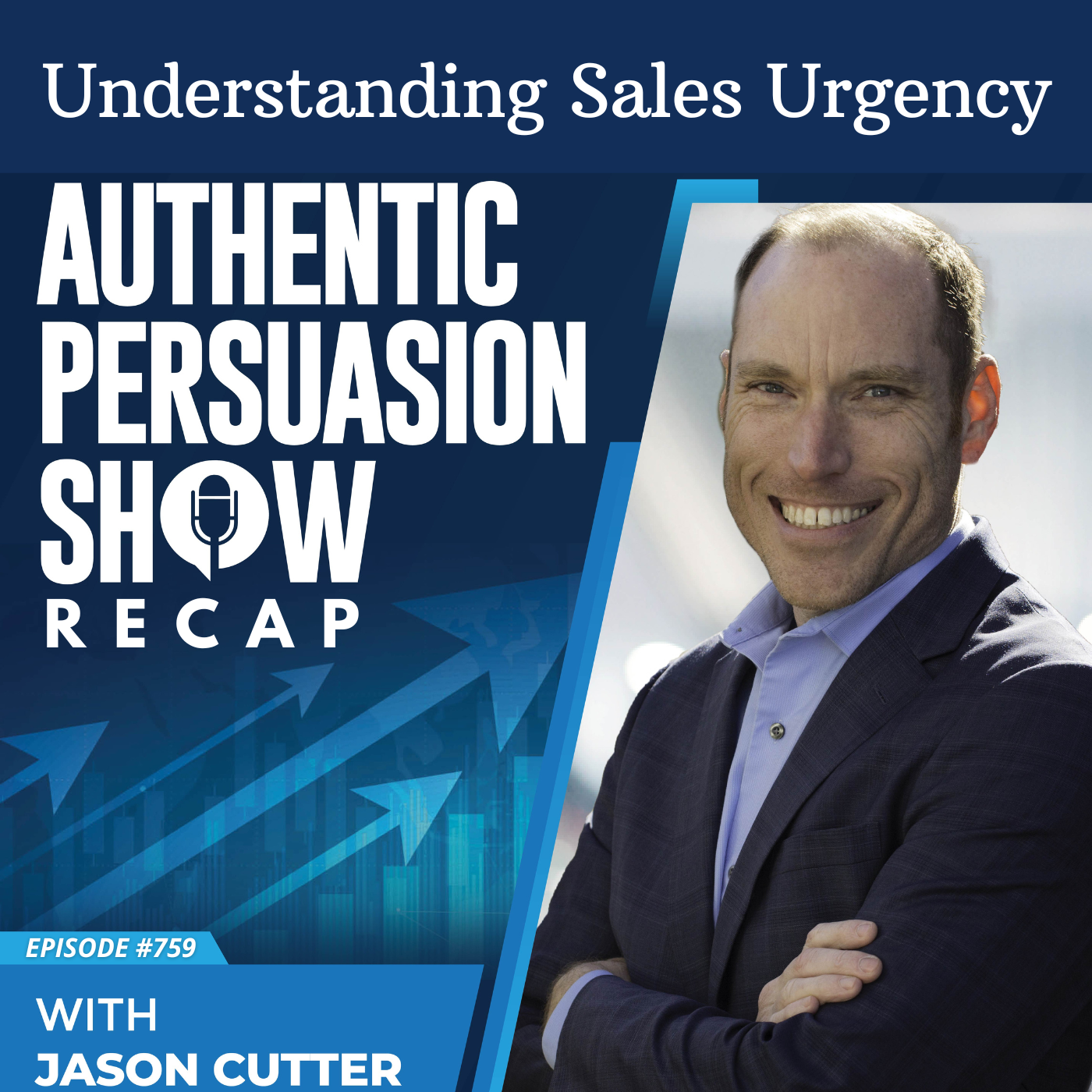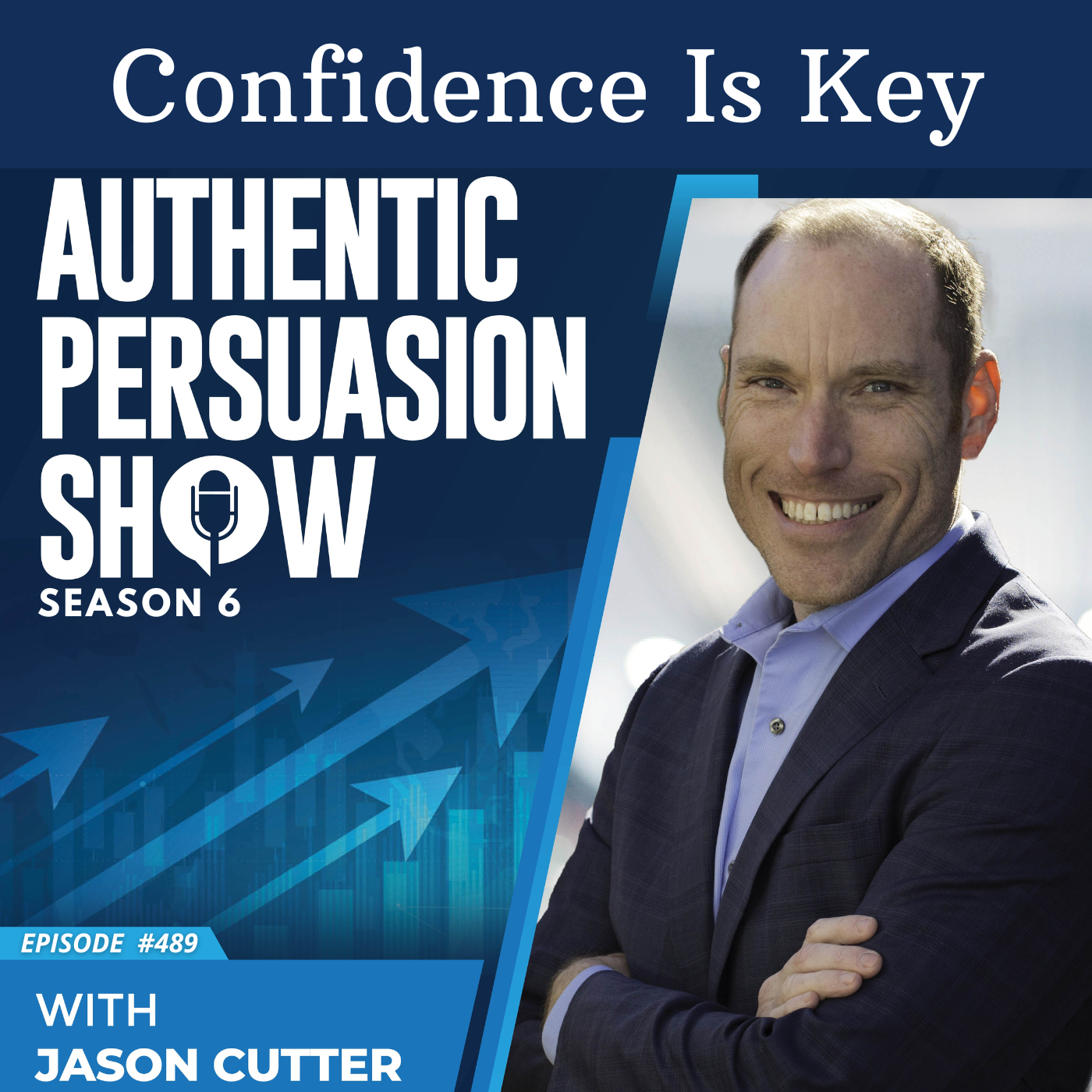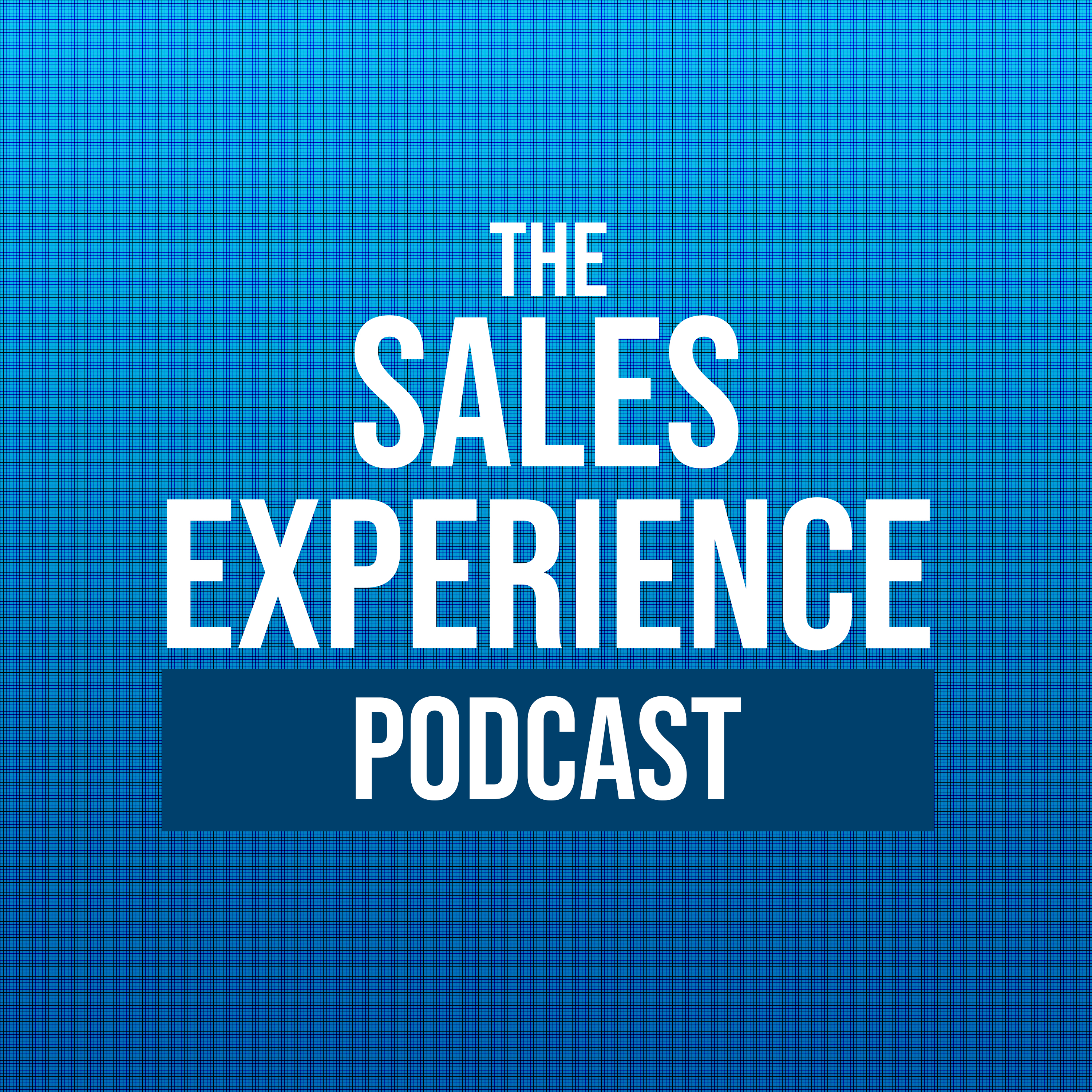Episode Transcript
Jason: On this episode, I have Jane Claire with me to chat about mindset, business, and life. She is from the UK living in France after traveling around the world in various places. Her coaching business is focused on helping people transition into online business with organic marketing. Jane, welcome to the show.
Jane: Jason, a very warm welcome and thank you very much for the invitation.
Jason: Yeah. So I am excited just even talking before we hit record. This should be fun. So the goal of the show is for salespeople and sales leaders on how to create a better sales experience. So let's start. Tell me your experience in sales or selling roles.
Jane: Okay, well, apparently I've been told that, and this is from about the age of eight, that I could sell sand to the Sahara. Which, that was a bit weird, because my mother works in a charity shop and I went in and helped her. And I've never classed myself to be a salesperson, because I believe strongly it's about the relationships that you build along the way, and your own authenticity.
And it is really about being congruent. And those all sound terribly big words because at the end of the day, it's just about being you. And I've worked in industries where technically it's not about sales as such, but from going to the supermarket, from running a 10 million pound company, from doing whatever, it's all about sales.
But you've got to be you and true to you and how you expect others to want to be treated. And that's, I suppose, where I've been different. There have been quite a few years of being different. And I get that. And I love it. And am I a sales chick? Yeah, I am. And I'm very, very proud of it because I do it my way.
With an awful lot of integrity. And I think for all of us in sales, we've been through an awful lot recently. We've had COVID, we still are. And the world is never the same. I personally never want to be sold to. And for those people who are listening, I'm doing the little italics on sold to. And who does?
We don't want that in our world. If I come on here, Jason, and go, Well, I can sell you this, and I can sell you that. literally blocked me. And rightly so. And I think the older we get over 30 is a good age to talk about. We get super intelligent and we're emotionally intelligent. And once those sales signals come into our radar, we switch off.
I think we should too, by the way, if you are genuine and you add real value to what somebody wants or needs, then it's going to happen. You don't have to sell it. It's about creating a match. And I've got a great thing that I posted a few months ago about would you date your ideal client? And a few people went, well you're not supposed to, that's not perfect, no, no, no, hold on, let's just, it's, yeah, it's a metaphor.
And the more commonality You share with your client, with the person that you're looking to do any kind of business relationship with. The more congruency there is, it's closer to the bullseye. When the bullseye is met. That's when the two parties both gain. Is that sales? Maybe. I don't know. Maybe it's not.
I don't know what the word is, but that's my approach to it.
Jason: Okay. Sounds good. That was a lot. Was it?
Jane: Sorry.
Jason: No, no, no. I think that's, I mean, that's literally the summation of, I think a lot of key things, right? So it's about relationships. It's about authenticity. What's fascinating is, and I've never heard anyone ask that before, or mention that about, would you date your ideal client?
Obviously that's not the goal, but. I think what's key and I bring this up because a lot of times sales and selling if it's relational even if it's a one interaction close right so if you're selling something you're talking to somebody once and then you're moving on even in that case is that there's a lot of parallels to courtship to dating and.
The beginning of relationships and really I think the better version of that question or the question to use is would you attempt to date somebody in the same way that you act as a salesperson?
Jane: Exactly. And that's the literal translation of it. I think when we meet a potential client, and nowadays, of course, that's whether it be online or face to face, there's lots of areas that the brain automatically sort of registers and gives you like a tick box.
And when the values aren't the same, all the industry moralities. Doesn't work for you, or they don't speak the same kind of language. I say, whatever speak you are. I mean, I'm not a blue chip corporate woman. Never have been tried it once failed miserably. I just don't fit into that mold. So if somebody is looking for that, they're not going to find it in me.
So again, would we date? No. If somebody wants me to do things that aren't within my sphere of expertise. No. And I think it's being true to yourself in whatever profession you're in, whatever environment, whatever vehicle you take to market, it's got to be the one that you're most comfortable with. When you find that great sofa that is the best sofa in the world, and you fit into it, and you're like, It's mine!
And you want that feeling. Because when most of us work for a living, and we either enjoy it, hate it, Love it and are super super passionate and lots of other negative things. I'm not even gonna go into so you may as well Find the best sofa the best date once you've done that It's the sweet spot. It's the bullseye.
It's where it's not an effort
Jason: Why do you think, because you're talking about how it should be done, right? And obviously anyone who knows me or listens to podcasts or anything that I do, it's literally the same way that I feel. Okay. Why do you think salespeople default to the other mode, which is the hard sale, the sales pitch, the illusion of a relational rapport type of conversation, but with that high pressure sales side?
Jane: I think they're probably in maybe the wrong niche. They are desperate, they've got targets, bonus things to achieve. They're working in an industry maybe that's not right for them because of either peer pressure or they see a shiny object. They see a financial goal. Come with us and you can earn 10k a month.
Okay, maybe. And they go along with it. And I think the beauty about being a bit older is that you realize that that's never going to be the way. Why are you going to achieve real, real success?
Jason: Definitely not long term. I mean, I've seen a lot of salespeople do that short term. They can do well for, for a quarter, a month, a year, maybe even a few years, but it's tough to sustain that model.
And I think what's interesting going back to the courtship and the dating conversation. I mean, there's people who oversell themselves to try to get somebody to go on a date with them. Yes. Yes. Yes. And sometimes it works, usually it pushes people away, but then the approach is well, it's a numbers game, right?
Just do that enough times and you'll find somebody who will agree with you. And I will contend that even if that works and you close the sale and you get that date, it's probably not going to last. It's probably not going to be the right fit anyway, right? So. Complaining. Yeah, and it's the same thing with sales, right?
So it is a numbers game. If you call or talk to enough people, you could use any approach to make some level of sales happen. But is this sustainable? And is it the proper way to do it for yourself or those customers or your company slash brand?
Jane: Yeah, it's a lot more for me than about numbers. I like a good P& L sheet.
I like a good balance sheet. But at the end of the day, if I haven't enjoyed it. I haven't given value. I haven't made a difference. I mean, and really, I'm talking honestly, Girl Scout, crush your heart, hope to die. Then, what am I doing it for? We can do numbers. All of us can do numbers. Sometimes by misadventure, or whatever you want to call it.
Or youthful naivety. And that's great. But, once you get past a certain point There has to be the ethical implication of what you do and how you do it.
Jason: So not to say that there was a time when you did unethical high pressure sales, okay, because I don't believe that you probably ever did that, but maybe you did at one point.
But do you remember a time where you shifted from maybe working in some kind of sales role or in a role where the motivation was more money related and then it shifted to a different purpose?
Jane: It did, definitely. And I was about, gosh, he's going back a bit. I was about 27 and I literally sold advertising space over the telephone.
And a friend of my brother said, Oh, low cost tacky advertising. I'm like, yeah, okay, cool. But I earned really well from it. And at that point, I knew that there had to be another way of doing it. So at 29, my own company doing it and I had 42 sales reps. This is before the internet took off, by the way. So it's a long time ago.
And I'd never known so much testosterone flying around. And my biggest game changer was guys. You don't have to sell because taking. That sort of macho, rah, rah, rah, because they had a shelf life. These were people who you could only sell at that level for so long. And my vision was to take it much, much longer.
It worked in part, the other part didn't work, but that's cool. Because, but I was true to me. And for me, that was a big shift.
Jason: So what part worked and what part didn't work when you made that shift?
Jane: It worked tremendously well for me, it worked for some of the staff on a certain level. Got it. Makes sense.
And the others, no. They wanted the rah rah rah, they wanted the chase, they wanted the aggression that came with it. And I went, uh, no, I'm not being funny, but in those days, we recorded all the calls. Which was a bit of a techno achievement, nowadays it seems nothing, but then it was. And I was like, well you can't say this, because then that's not true.
And they didn't like being held accountable to their words.
Jason: Well, and it's interesting because I have in the past managed sales and customer service or processing the backend once the sale happens for let's say a service. I've also had lots of conversations with customer service leaders being the sales guy in the room.
And there's always that disconnect, right? Where it's salespeople are setting things up focused on the moment they want to close the deals right now. They don't really care what happens afterwards, maybe not compliant or truthful. And then it just ends up in a mess in the back end.
Jane: It's huge. And even when I lived in Dubai, I did some work for a great interior design company and we were selling commercial.
interiors, big, big stuff. And there was some of the crew on the sales team who basically would say quite a lot that couldn't be delivered. And obviously as an interior designer, I knew that. And at that point, you think, well, hold on. You've got to manage the customer properly. And not, I'm not even going to use fib for you for a better word, to get the sale.
Because then, we had like 80, a crew of 80, who would have to try and then implement. Yeah. What some daft salesperson, for use of a better word, had promised, it's not fair, on anybody. And you didn't need to do it, that was the difference. And I went in, and I did, yeah, actually two years of them, and I, yeah, it was huge.
And they were like, oh my god. You can do the owners were very congruent, ethical, and then some of the sales seem like, Oh, you can't do it really. Yeah. Yes.
Jason: All right. That's it for the first half of my conversation with Jane Clare. Make sure to go to the website, cutter consulting group. com slash podcast, where you can find the show notes.
Jane's links and all of her information and I will catch you on the second half. That's it for another episode of the sales experience podcast. Thank you so much for listening. If you find yourself on iTunes, can you leave the show a rating and a review? It helps other sales people and sales leaders find the show and please subscribe to the show and share episodes you find valuable with anyone you know in sales.
Help me on my mission of changing the way. Sales is done. And if you're ready to work together, go to Jason cutter. com. Again, that's Jason cutter. com to find out how I can help you or your company create scalable sales success. I will see you on the next sales experience podcast episode, and keep in mind that everything in life is sales and people will remember the experience you gave them.
![[E264] Clarity, Confidence, and Authority, with Jane Clare (Part 1)](https://episodes.castos.com/salesexperiencepodcast/images/Jane-Clare.png)


